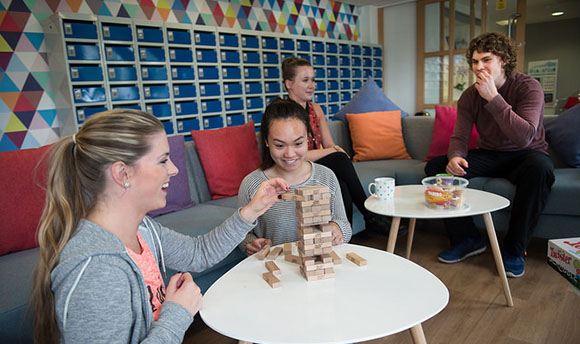Living life can be messy. Balancing our different roles and responsibilities - some chosen, some inherited, and many imposed – demands time and energy.
Busy lives can become messy when ill health, lack of opportunity, or changing circumstances stop people from being able to do the things they need and want to do. Experiencing disability, looking after an ageing parent, trying to participate at school when the other kids seem to be able to do things that you cannot; these can all create messy problems.
From a scientific point of view, these problems are complex as there may not be obvious or consistent solutions and it is often not possible to predict the effect of any given action.
Among the many challenges facing our health and social care system is how to engage with complex problems. This is significant because the majority of the methods available to scientists and researchers focus on finding purely technical solutions. Technical solutions are based on the idea that there will be a single best way of solving a problem, and that the key to finding this is through carefully controlled observation. In this context, the aim is for problems to become well defined, solutions to become obvious and outcomes to be predictable.
There is no doubt that this has been, and will continue to be, an incredibly valuable approach. New medicines, surgeries, genetic testing, and real-time imaging are all technical solutions. However, these approaches might not always be the best way of tackling complex and deeply human problems. Health is more than the absence of illness, it is the opportunity to live without being obstructed by disability or circumstance.
A person’s health is dependent on whether they do the things that bring meaning and value to their lives, regardless of whether a disease or illness affects them. Factors that impact health, such as perceptions, values, identities, societies and cultures, are constantly shifting and unpredictably affect how people live their lives. Technical solutions that aim to understand health as a set of machine-like components may not tell us much about how to work with problems that are deeply embedded in individual and social contexts.
So what can we do when we reach the limits of our technical skills, when we cannot prescribe a medicine or repair an injury? How do we help people live their lives, and live them well, when things become messy? Or even better, how do we help people to live busy lives that keep them well?
As an occupational therapist my profession is about responding to these complex problems. My colleagues around the UK work in all sorts of settings - some obvious like busy hospital wards and social care teams, but also in prisons, classrooms, charities, private companies and social enterprises. You will often find occupational therapists working in a person’s home and community.
We work with people to understand and accomplish activities and occupations that bring meaning to their lives. The Royal College of Occupational Therapists calls this ‘helping people to live, not exist’. Using adaptive devices, changing environments, and enabling people to develop new skills are some of the techniques we use.
The research undertaken with my colleagues at Queen Margaret University shows that, while the principle seems simple, the application of these ideas in practice is complex. No two solutions are the same because no two people are the same.
For example, stroke sufferers may have problems making dinner. Physically they may be less coordinated and cognitively they might have difficulty focussing, or remembering how to do certain tasks.
The complexity in the response from an occupational therapist comes not from the injury, though this has initially caused the problem, but because making dinner has so many different meanings and components.
Different meals need to be prepared in different ways: the person might have to make dinner for the family each night or they simply might want to engage in cooking as they enjoy it. Perhaps they might have to prepare food a certain way for cultural reasons. No person is the same.
It can be difficult to show the value of approaches that do not lend themselves to using technical solutions, because most of science is set up to design and evaluate the latter. How do you show that something has had a positive impact if the definitions of positive and impact change for each person you work with?
Presently, the health and social care system remains deeply wedded to finding technical solutions to problems. As a result, it becomes hard to allow skilled health and social care professionals the time and flexibility to work with people to find the best way of responding to the issues affecting their health.
At a time of unprecedented challenge, when the burden of care is increasingly coming from the need to help people live with multiple long-term conditions because there are no obvious solutions, we should be wary that we do not overlook messy solutions to messy problems even if this does not always fit with how the system likes to work.







